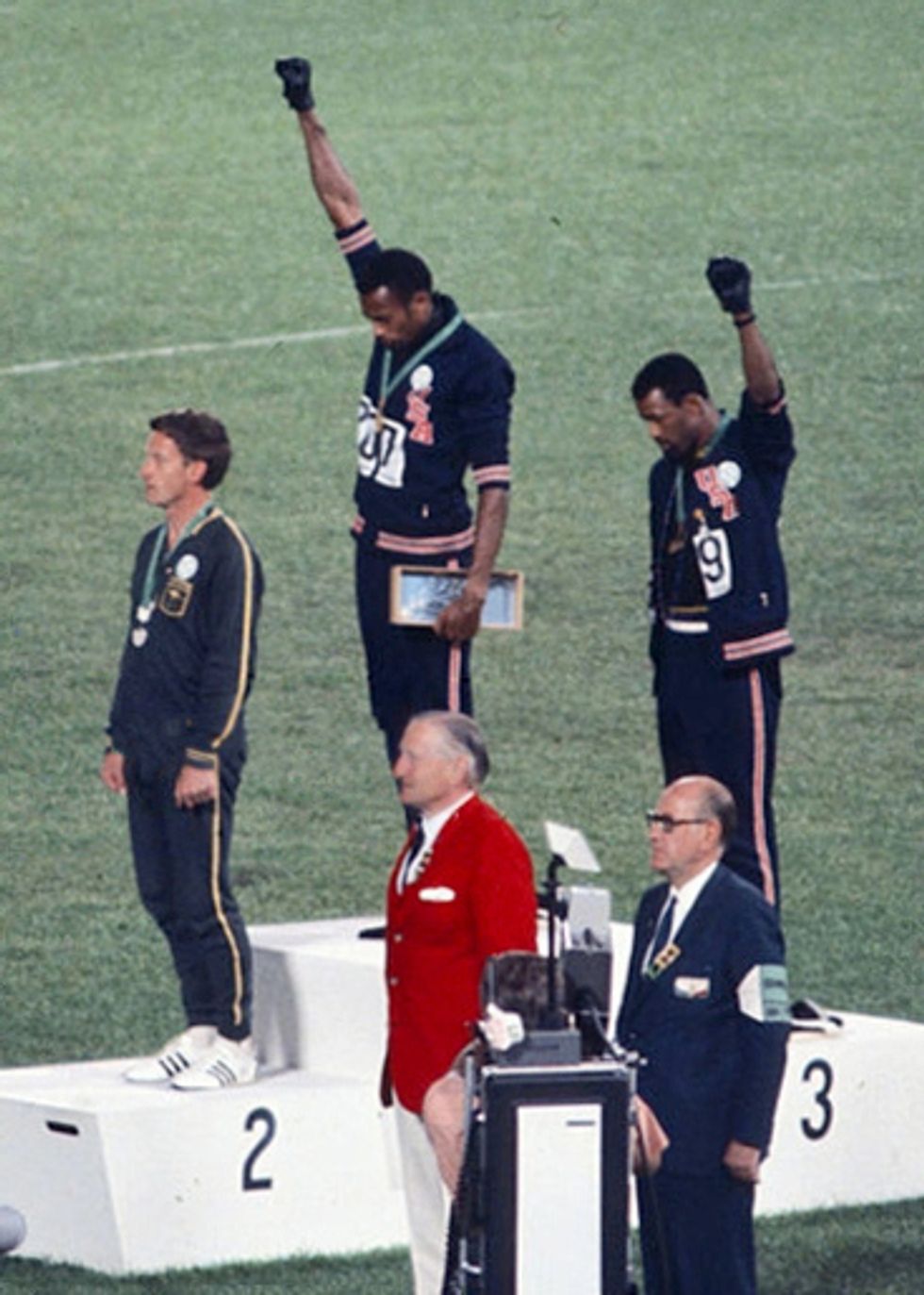That Time When African Countries Boycotted the 1976 Montreal Olympics & Stuck it to Apartheid
Could you imagine black athletes doing that now?

Just last month WNBA teams Indiana Fever, New York Liberty, Phoenix Mercury were fined $5,000 and individual players were given a $500 penalty for wearing “black lives matter” warm-ups as a show of solidarity in the wake of police killings of Alton Sterling and Philando Castile in Minnesota and Louisiana.
While players like Tina Charles, forward for the Liberty, continued to wear their altered, black warm-ups after the fines were announced (they were later dropped) and both Fever and Liberty teams staged a media blackout after their match, refusing to answer any questions related to basketball—one can’t help but wonder what would happen if all black athletes from all sports refused to play until police brutality stopped or reparations were paid out?
I refuse to be silent @WNBA pic.twitter.com/INIAI1rSIF
— Tina Charles (@tinacharles31) July 21, 2016
Sports protest used to be hardcore. Remember when the late, great Muhammad Ali was arrested, tried, convicted and stripped of his heavyweight title when he refused to be drafted into the Vietnam War? This caused him to miss out on three of his prime boxing years. When American Olympic sprinters Tommie Smith and John Carlos stood on the podium at the 1968 Summer Olympic Games in Mexico City and raised their black-gloved fists as the U.S. national anthem played, they were subjected to racist backlash.

It’s difficult to imagine any of today’s athletes giving up their multi-million dollar salaries, endorsements and celebrity to boycott their respective sports. Perhaps one of the best examples of athletes standing up for racial and social justice was when African athletes boycotted the 1976 Montreal Games.
Remember that?
Black-ruled African nations upset that New Zealand’s rugby team was touring South Africa—the country had been excluded from the Olympics since 1964 and largely shunned by the international sports community for apartheid—threatened to withdraw from competition on the eve of the 1976 Montreal Olympics. The 33 countries recognized an opportunity to stick it to the rugby-devoted, white minority rulers of South Africa.
Their demand? The International Olympic committee had to ban New Zealand. It was a last minute, gutsy decision especially considering many of the athletes had arrived in Montreal and were already participating in preliminary matches when their governments decided to pull out. However, the nations recognized that there is strength and power in numbers, and palpable change happens only when wallets are affected.
Egypt’s team participated in the opening ceremonies, but dropped out the next day, and even Iraq and Guyana joined the African protest.
The countries’ decisions to forgo competition resulted in intense negotiations although ultimately the IOC didn’t concede, claiming rugby was outside of its jurisdiction. New Zealand’s rugby tour continued and the island nation was not barred from competition. However the African nations’ boycott caused cancellations, rescheduled events and $1 million in refunds. Track and field contests were also significantly impacted with so many runners from African countries absent. Go figure.
Apart from that, their show of unity, spurred by the decolonization of the African continent in the 1950s and 60s, led to the word “apartheid” appearing on front pages of newspapers. And citizens began pressuring their governments to act, which resulted in economic sanctions against South Africa that helped end formal apartheid rule two decades later.
What’s more, black athletes sacrificing the pinnacle of their sports careers on the international stage boosted the morale of student protesters who took part in the Soweto uprisings in South Africa that happened a couple months prior to the 1976 Olympic games.
Fast-forward to the present-day, what if athletes collectively agreed to stop playing or staged another boycott of the Olympics in Rio?
We can only imagine...

